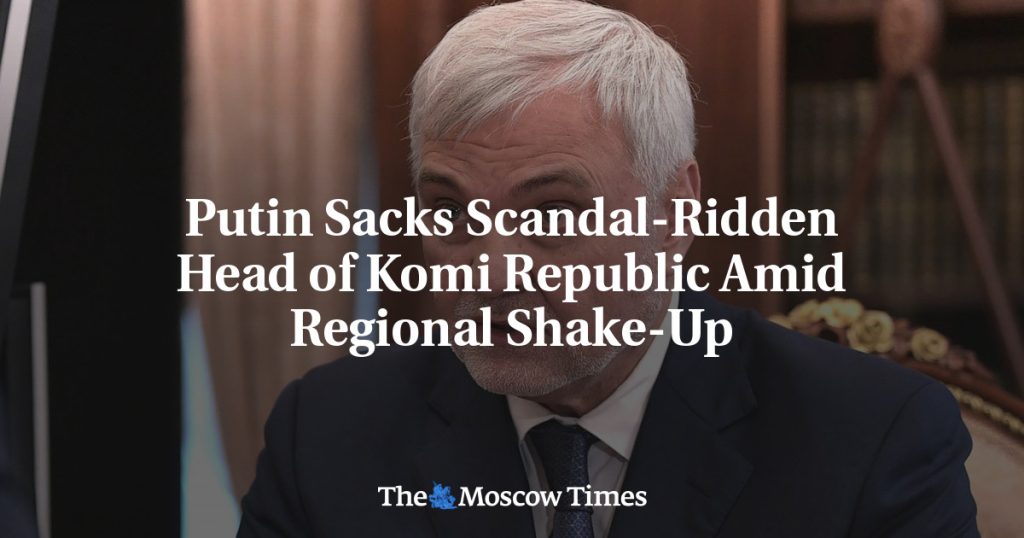The head of Russia’s republic of Komi, Vladimir Uyba, announced his resignation, becoming the third regional executive to step down in two days after the governors of Rostov and Tambov. Uyba stated that he had been entrusted with a new federal-level role by President Vladimir Putin but did not disclose his next position. Prior to leading Komi, Uyba served as the head of Russia’s Federal Medical-Biological Agency and took office in April 2020 following the dismissal of his predecessor due to his handling of the Covid-19 pandemic. President Putin appointed Rostislav Goldshtein, the head of the Jewish autonomous region in the Far East, to serve as the acting regional leader of Komi following Uyba’s resignation.
Uyba’s departure from office was anticipated by Kremlin sources and political analysts due to his strained relationships with local elites and his status as an outsider to Komi. Last year, tensions in the region attracted international attention when former agriculture minister Denis Sharonov sought asylum in the United States, citing a military draft summons he received as a result of his conflict with Uyba. Russian political analyst Evgeniy Minchenko had previously ranked Uyba amongst the regional executives with the least stable political positions, adding to the anticipation of his resignation. Uyba’s resignation follows the announcements of the resignations of governors from the Rostov and Tambov regions, signifying the beginning of Putin’s annual gubernatorpad, or regional leadership shake-up.
The shake-up of regional leaders is part of Putin’s annual routine to replace governors, and Uyba’s resignation was one of the initial moves in this process. The Kremlin reportedly aims to maintain tight control over Russia’s ethnic republics, and Uyba’s strained relationships with local elites may have contributed to his removal from office. The resignation of Uyba, along with the recent resignations of governors from other regions, marks the informal start of the gubernatorpad. As an outsider to Komi, Uyba’s leadership may have faced challenges within the region, leading to his removal from office. The appointment of Rostislav Goldshtein as the acting regional leader of Komi reflects Putin’s response to the changing leadership landscape in the region.
The decision to remove Uyba from office comes after speculations and reports suggesting his potential resignation. Uyba’s lack of stability in his political standing as a regional executive, as noted by political analysts, contributed to the anticipation of his resignation. The tensions within Komi, including the conflict with local elites and the asylum request of a former minister, shed light on the challenges faced by Uyba during his tenure. The changes in regional leadership in Komi and other areas in Russia are part of the ongoing political dynamics within the country, reflecting the complexities of maintaining control over ethnic republics and managing regional governance. Putin’s annual shuffle of governors underscores the importance of political stability and loyalty within Russia’s regions.
As the shake-up of regional leaders continues in Russia, the resignations of Uyba and other governors highlight the shifting political landscape across the country. The Kremlin’s efforts to maintain control over ethnic republics and regional leadership roles are evident in the recent changes in Komi and other regions. Uyba’s resignation, along with the appointment of an acting regional leader, represents a step in Putin’s annual routine of replacing governors to ensure loyalty and stability within Russia’s regions. The ongoing political dynamics in Russia, including the gubernatorpad and changes in regional leadership, indicate the complexities of governance and control at the regional level.














